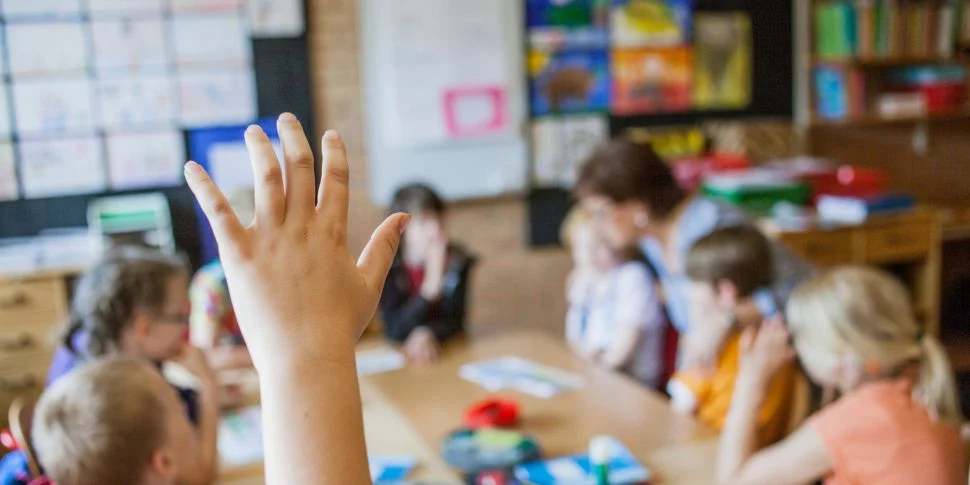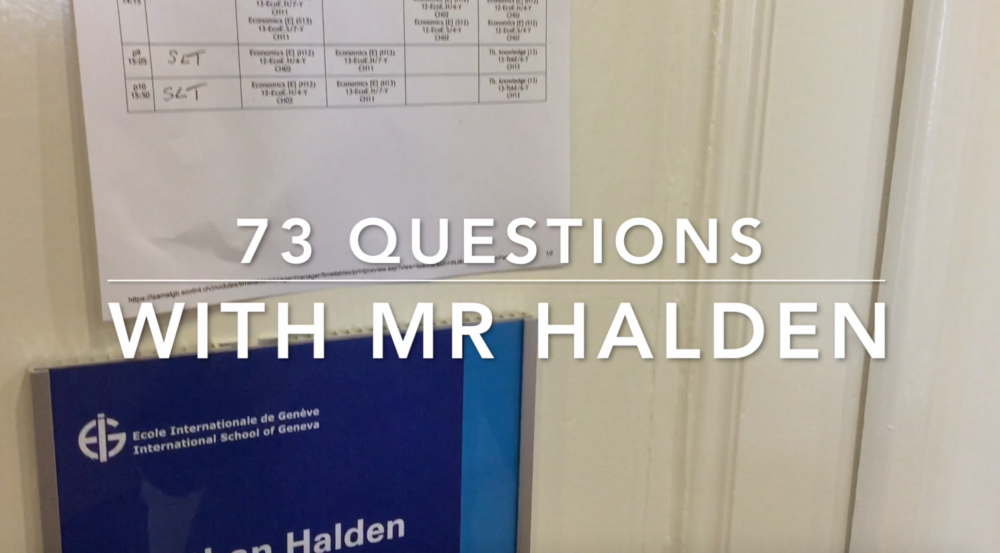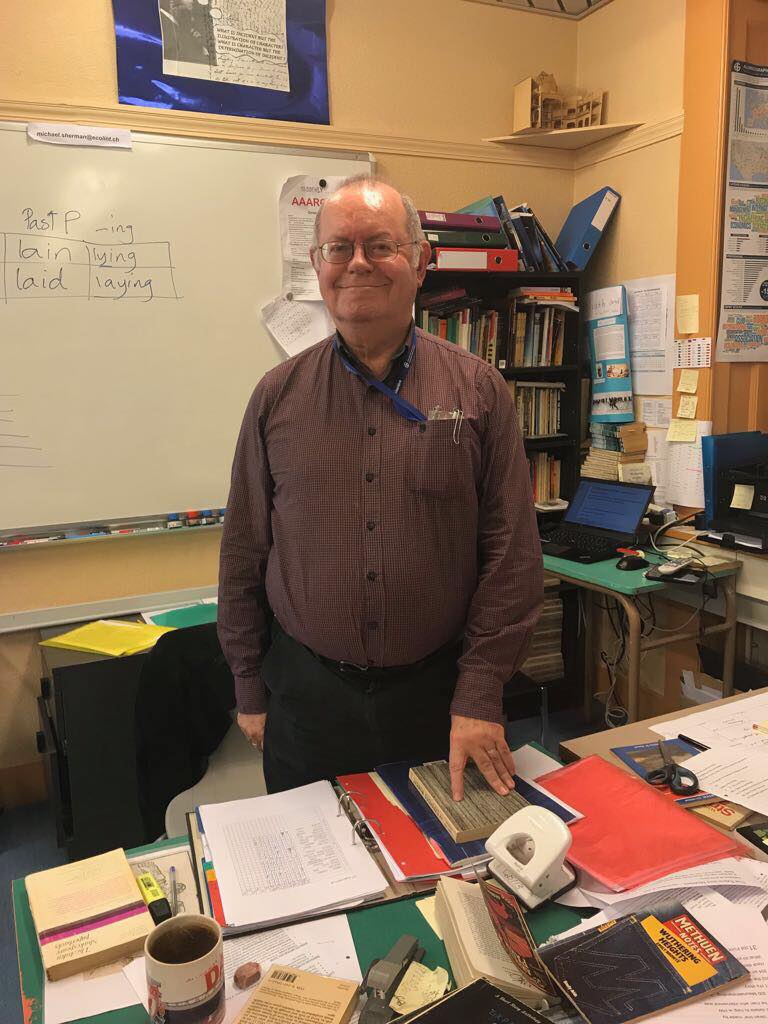By Claire Hines, Year 11
The Extended support program at our school is on the ground floor of the Grand Batiment next to the Pavillion des Langues. The ESP team kindly accepted to be interviewed to explain what they do here and the critical role they play here at LGB.
What does the ESP do? What is its role?
The Extended Support Program is a program that has been running at LGB for 12 years now I think or more. It’s a program whose main purpose is to support students with moderate to severe special needs in their social, emotional and academic development and pathway through secondary school. And also (especially in secondary school) work with the students and their families to carve out the best possible path for them in the future after they leave school.
What sort of difficulties do you help your students overcome?
The students all have different types of profiles. And rather than difficulties, we rather see them as other ways of approaching life or alternate ways of tackling a problem. We have students who have developmental delays, we have quite a few students on the autism spectrum. So, although we sometimes think that students in ESP have their set of challenges and profiles, they are usually perhaps a more defined version of these profiles that other students in the mainstream classes have. Also hyperactivity or attention deficiencies.
What about speech difficulties?
Yes, so receptive and expressive language difficulties, so understanding the language (not just spoken language but body language). Expressing themselves and getting the thoughts in their heads out into spoken words or written words at times is a challenge, and a big part of our work is adapting the tasks and the tests and things so that students are able to show what they know. Because a lot of the time they know a lot more than they are able to show, it’s finding alternative ways for them to be able to show what they are able to do.
How do you help them confront or overcome these obstacles? What sort of activities or lessons do you give them?
Well, sometimes we accompany them in ordinary lessons and help them with note-taking or doing some revision. They have the cognitive ability to follow but they can’t really multitask. So, they can listen to the teacher but can’t take notes, so we help them with that. Or we can sometimes completely take them out of the ordinary curriculum and work on different programs. And we can work on all sorts of different aspects that will help them tackle the ordinary curriculum or life in the classroom.
And sometimes we don’t even do classroom-related things. Sometimes we cook with them because it is a way for them to learn so many life skills that you wouldn’t expect in a classroom setting. But we’re working together, following instructions, it’s just like lab work, but with maybe a tastier conclusion!
And some of our older students are getting ready to leave school. So, we do a lot of preparation about what it will look like when you leave school. So, how do you manage a bank account? Or, how would you go food shopping for yourself or make sure you have enough time for your friends, your family, your work… All things like that. So, a lot of it is more than just academic help.
Also, tests. Often in school tests are standardized, and everybody does the same test. But in ESP we’re able to change how that test can be delivered, so, it can be a presentation or just a conversation with another student, or maybe they’re drawing something on the board instead of writing something on the paper, all the while keeping the criteria the same. For example, we let them use a computer to do a test.
So, the work that we do, can be categorized into two areas. We do some Remedios programs that are targeting specific aspects like a maths Remedios program or a language comprehension. Then there is a whole social, and emotional aspect of their learning. So, we do a lot of work on that, managing anxieties, and social skills and that kind of thing.
We do a lot of outings also to get them to practise these skills in the real world.
What sort of outings do you do?
So, with some of our younger students, we had them plan an outing that they wanted to go to. Something fun outside of school for the end of the term. And so, for three weeks we sat down and we looked at how you get there, how much it will cost, how long will it take us, what are our options, what you should wear to the outing, how you should behave at the outing…and so two students planned this outing for the rest of year 9 to go on.
Another example of an outing is with some older students we practised ordering and speaking to people in shops. So, how to phone for a reservation at a restaurant or a café. So, we practised that at first and then the next lesson we got the tram and we went to go order at a café by ourselves.
Coming back to the idea of preparing them for when they leave school, do you help them set up internships or guide them towards universities?
A large part of our work is preparing them for what will come after they leave secondary school. So, currently, we have a couple of students who are attempting to do the I.B., and who have college in mind, and we have had in the past a couple that went down that path but the majority don’t. So, for those students that have less of an academic pathway through secondary school, we do job training as a way to prepare them for jobs and a place in an apprentissage or in a sheltered workshop environment. We have a whole program set up for starting work placements at school and then we go into the community. And with that goes all of the skills you need to develop to go on to the work phase, so job interviews, CV writing skills, being on time, self-organization, behaviour… I really enjoy that aspect.
Do you have some victories or successes?
Yesterday actually. There are some students, especially in secondary school, who are very anxious about tests like every other student. And we have one student that really didn’t enjoy doing tests, and all of a sudden, we reworked how he could do it. So, we had a massive victory when someone who didn’t do tests for years finally did a test yesterday and actually enjoyed it, and had fun doing it.
And in terms of students’ success stories, I think that all of our students have been a success story.
It’s nice to see them come back after they’ve left and are happy in what they do. It’s part of the success to see that they have managed to find their way in their studies or work.
Another student came back recently and exhibited all of his artwork! That was a very prideful moment for us.
Do you find this job fulfilling?
We do otherwise we wouldn’t be here.
I always think to myself that I’m in such a lucky position because my passion is my job. I’m really passionate about what I do, I love it and love working with the students. And the challenges that arise, because there are many, for me that’s what this job is all about. It’s not supposed to be easy, if it were easy, it wouldn’t be an ESP thing. And I think because of that, we’re definitely never bored, every day is a new day.
For me at least, it’s the fact that every day is so different. You never come to work knowing what to expect. And sometimes it’s a bit of a fright, and other times it’s a very happy event. But at the end of the day, it keeps you on your toes, and that’s what I enjoy.
It’s also a learning experience for us because I think we learn from our students as well. It’s not just one way, we’re not just teaching them, we’re also learning from them. And they are all so different and have such different insights, so it’s always very exciting.
At the beginning of the year, when the new students come in from middle school, this place becomes their safe space very quickly. And that is a source of pride, I was very happy to see that they feel safe here. And as a team, I feel safe here as well to confide in my colleagues as well when I need help. That big source of fulfilment is that you’re always sharing, always learning from other colleagues and students. Every day is a new opportunity to learn.
It’s unique and it’s really a privilege to be able to work with individual students and really get to know them intimately. We work with students with diverse backgrounds and needs. But we all come together, and we get to know them as individuals which if they were in the mainstream classes, we would not be able to do. We learn from each other and this exchange makes our daily life and our work here more meaningful.
I think we establish different sorts of connections with the students and each other. That’s another really rewarding part of the job, the way we are connected on a human level.
It’s also on the long term as well, we have had these students for several years, from year 9. And a normal teacher, they have students for one year and then they change. But we can follow them over five years and see their development, their maturity, and also the change from their past selves, in their ideas or desires. So, it’s really nice to be able to follow them.




Great article! I haven’t directly been affected by the ESP team, but I’ve had many amazing interactions with classmates who have. What a privilege our school community has to have the ESP team allowing students with all levels of difficulties to interact with each other!